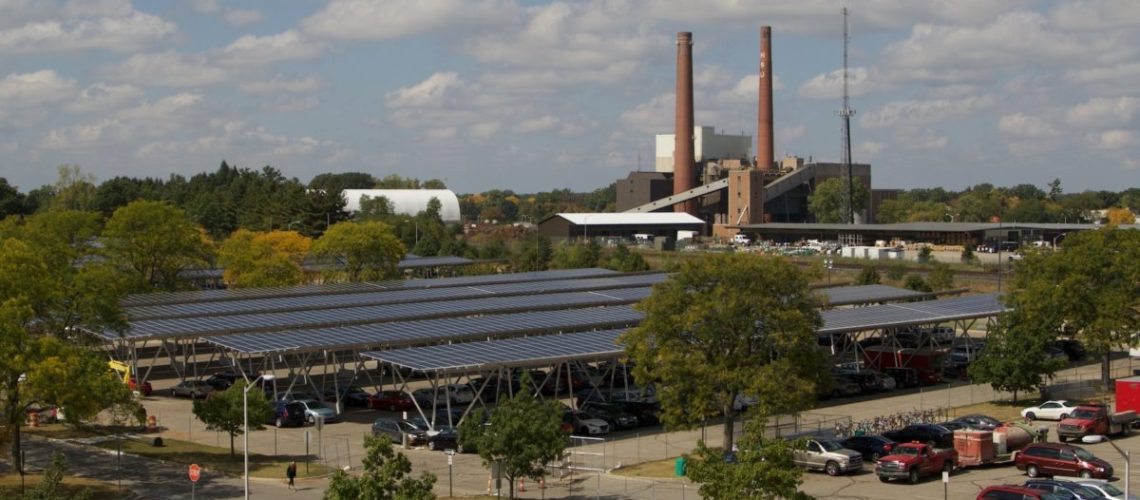DTE Energy’s Integrated Resource Plan will be more climate-friendly following political action from Vote Solar, Union of Concerned Scientists and the Ecology Center.
A coalition of renewable energy and climate science groups in Michigan scored a victory as utility DTE Energy revised its Integrated Resource Plan (IRP) in a settlement.
The plan calls for retiring Michigan’s Monroe coal plant ahead of schedule. It also calls for 3.8 GW more renewable capacity by 2030 above the previous target set by DTE. The developments are a win for DTE’s 2.3 million customers as the state works towards securing clean, low-cost electricity.
“Today’s agreement is a step forward for Michigan’s clean energy transition, and a beacon of what’s possible when policy know-how, regulatory expertise, and community voices converge,” says Will Kenworthy, senior regulatory director for the Midwest, Vote Solar.
The settlement was the result of work by the Clean Energy Organizations, a coalition that includes Vote Solar, Union of Concerned Scientists, and Ecology Center.
Another provision win in the settlement was the raise of the utility’s distributed generation (DG) cap, which sets a hard limit of what percent of the generation mix small-scale facilities like rooftop solar can contribute to the grid. The cap was raised six-fold from 1% to 6%, raising it from one of the most draconian cap levels in the nation to a higher level. Last year the coalition scored a similar victory for Michigan’s Consumers Energy utility.
There is also bill on the table in Michigan to remove the distributed generation cap altogether. Senate Bill 362 would both remove the DG cap and restore net metering to the state. The legislation would be a reviving force for the state’s rooftop solar industry and a boon to customers looking to secure their own local, reliable, low-cost, and clean electricity with rooftop solar. DTE Energy has stated it is opposed to the bill.
In addition to boosting renewables, the DTE Energy settlement pushes the timeline forward three to five years on shutting down the Monroe coal facility. Expert analysis calculates that the settlement would avoid $432 million $972 million in total health costs and 39 to 87 premature deaths that would otherwise be caused by burning coal at the units through 2035 under DTE’s original proposal. DTE will also close its Belle River plant three years ahead of schedule under the IRP leading to another potential 71 to 159 prevented premature deaths from the negative health effects of coal burning.
“Accelerated coal retirement, replaced with clean renewable energy, will have widespread implications for air quality and public health. There’s no question that this will save lives,” said Alexis Blizman, policy director, Ecology Center.
DTE Energy also agreed to allocate $38 million to organizations and programs designed to provide bill payment assistance and energy upgrades to income-qualified families. Of that total, $8 million will help implement home readiness, energy efficiency, distributed generation and energy storage programs for low-income communities.
“This will help address two critical concerns of our clients,” said Environmental Law & Policy Center associate attorney Daniel Abrams. “First, that low-income Michigan families will be provided sustainable, enduring means to lower their energy bills. Second, that the clean energy revolution leaves no one behind.”
DTE Energy’s original proposed IRP was filed in November of 2022. Since then, hundreds of Michigan residents have made public comment on the proposed plan. In March, the Clean Energy Organizations filed expert testimony in which they outlined an alternative to the IRP. The settlement now goes to the desk of the Michigan Public Service Commission for approval.



